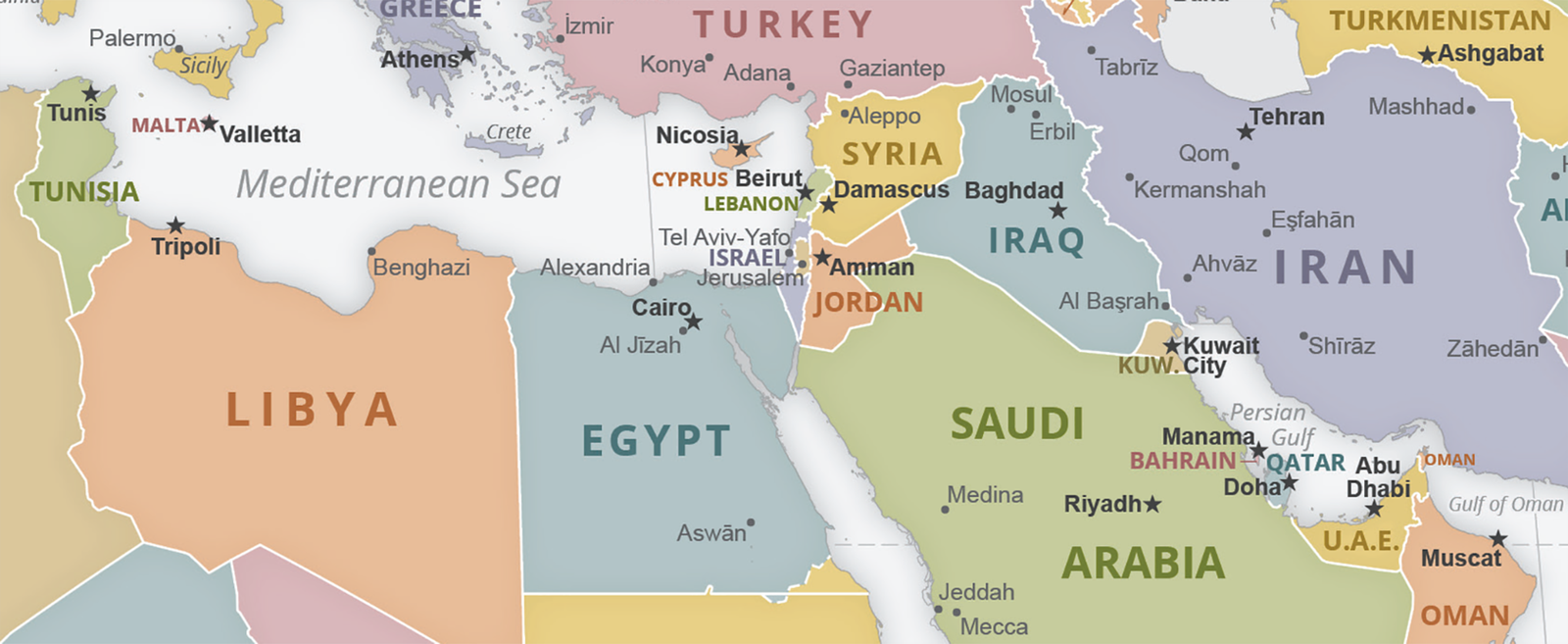Mubashar Nadeem
The Middle East is a complex and dynamic region that has been shaped by various historical, cultural, religious, and political factors. The politics of the Middle East can be analyzed at three levels: internal, regional, and international.
At the internal level, the Middle East is composed of diverse states with different political systems, ranging from authoritarian regimes to semi-democracies. Some common challenges these states face include social unrest, economic inequality, corruption, human rights violations, and sectarianism. The Arab Spring of 2011 was a series of popular uprisings that challenged the status quo and demanded political reforms in several countries, such as Tunisia, Egypt, Libya, Syria, and Yemen. However, the outcomes of these revolutions were mixed, as some resulted in democratic transitions, while others led to civil wars, military coups, or foreign interventions. In 2019, another wave of protests erupted in Algeria, Iran, Iraq, Lebanon, and Sudan, reflecting the persistent dissatisfaction and frustration of the people with their governments. Civil society, opposition groups, and social movements in these countries are crucial for advancing democratic change and holding the authorities accountable.
At the regional level, the Middle East is characterized by multiple conflicts and rivalries that affect the stability and security of the area. Some major issues that divide the region include the Israeli-Palestinian conflict, the Iranian nuclear program, the Syrian civil war, the Yemeni crisis, the Kurdish question, and the rise of extremist groups such as ISIS and others. These issues often involve external actors with competing interests and agendas in the region. For instance, Saudi Arabia and Iran are engaged in a proxy war that spans across several countries, such as Iraq, Syria, Yemen, Lebanon, and Bahrain. Then, it is a welcome step that both countries are coming closer. Turkey and Egypt are also vying for influence and leadership in the region. The Arab League and the Gulf Cooperation Council are two regional organizations that aim to promote cooperation and integration among their members but face internal divisions and challenges.
Please, subscribe to the website of republicpolicy.com
At the international level, the Middle East is a strategic region that attracts the attention and involvement of global powers. The United States has been the dominant actor in the region since the end of World War II, providing military aid and diplomatic support to its allies such as Israel, Saudi Arabia, Egypt, Jordan, and Iraq. However, in recent years, the US has faced criticism for its policies and actions in the region, such as its invasion of Iraq in 2003, its withdrawal from the Iran nuclear deal in 2018, and its assassination of Iranian general Qasem Soleimani in 2020. The US has also announced its intention to reduce its military presence and involvement in the region under the Obama and Trump administrations. This has created a power vacuum that other actors have tried to fill. Russia has emerged as a critical player in the region by supporting the Assad regime in Syria, selling weapons to Iran, and mediating conflicts in Libya and Nagorno-Karabakh. China has also increased its economic and diplomatic ties with several regional countries through its Belt and Road Initiative. The European Union has also tried to play a constructive role in the region by promoting dialogue and cooperation on various issues such as human rights, migration, climate change, and regional security.
Lastly, the Middle East is a region that faces many political challenges and opportunities at different levels. The region’s future depends on how its states and societies can overcome their internal problems and external pressures. The role of regional and international actors is also essential for shaping the outcomes of these processes. However, presently, the Israel-Palestinian conflict is dominating the Middle East politics. The conflict is a test case for Arab states on how they further their political, cultural, economic and strategic interests in the backdrop of the conflict.
Please, subscribe to the monthly magazines of republicpolicy.com
















